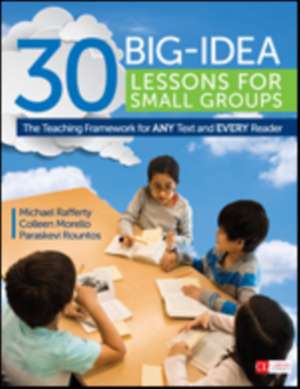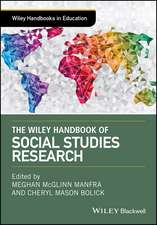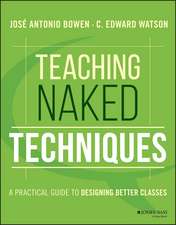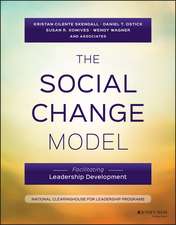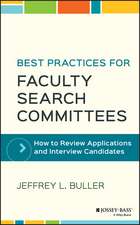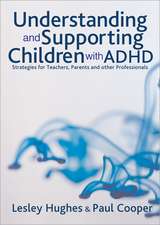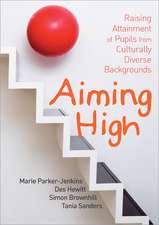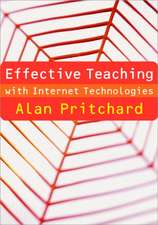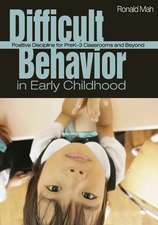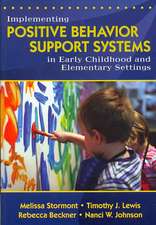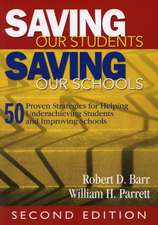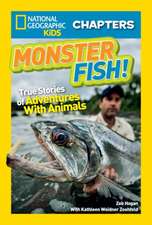30 Big-Idea Lessons for Small Groups: The Teaching Framework for ANY Text and EVERY Reader: Corwin Literacy
Autor Michael J. Rafferty, Colleen A. morello, Paraskevi Rountosen Limba Engleză Paperback – 5 iul 2016
Din seria Corwin Literacy
-
 Preț: 285.18 lei
Preț: 285.18 lei -
 Preț: 158.08 lei
Preț: 158.08 lei -
 Preț: 278.41 lei
Preț: 278.41 lei -
 Preț: 243.82 lei
Preț: 243.82 lei -
 Preț: 244.25 lei
Preț: 244.25 lei -
 Preț: 88.42 lei
Preț: 88.42 lei -
 Preț: 273.64 lei
Preț: 273.64 lei -
 Preț: 274.70 lei
Preț: 274.70 lei -
 Preț: 200.92 lei
Preț: 200.92 lei -
 Preț: 248.27 lei
Preț: 248.27 lei -
 Preț: 284.26 lei
Preț: 284.26 lei -
 Preț: 294.79 lei
Preț: 294.79 lei -
 Preț: 281.36 lei
Preț: 281.36 lei -
![Mindsets and Moves: Strategies That Help Readers Take Charge [Grades K-8]](https://i3.books-express.ro/bs/9781506314938/mindsets-and-moves.jpg) Preț: 156.17 lei
Preț: 156.17 lei -
 Preț: 283.27 lei
Preț: 283.27 lei -
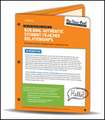 Preț: 88.42 lei
Preț: 88.42 lei -
 Preț: 281.95 lei
Preț: 281.95 lei -
 Preț: 248.27 lei
Preț: 248.27 lei -
 Preț: 278.66 lei
Preț: 278.66 lei -
 Preț: 276.91 lei
Preț: 276.91 lei -
 Preț: 237.15 lei
Preț: 237.15 lei -
 Preț: 270.76 lei
Preț: 270.76 lei -
![Comprehension [Grades K-12]: The Skill, Will, and Thrill of Reading](https://i3.books-express.ro/bs/9781071812839/comprehension-grades-k-12.jpg) Preț: 287.79 lei
Preț: 287.79 lei -
 Preț: 278.11 lei
Preț: 278.11 lei -
 Preț: 245.45 lei
Preț: 245.45 lei -
 Preț: 204.27 lei
Preț: 204.27 lei -
 Preț: 272.62 lei
Preț: 272.62 lei -
![Every Minute Matters [Grades K-5]: 40+ Activities for Literacy-Rich Classroom Transitions](https://i4.books-express.ro/bs/9781544382449/every-minute-matters-grades-k-5.jpg) Preț: 193.61 lei
Preț: 193.61 lei -
 Preț: 274.00 lei
Preț: 274.00 lei -
![Flash Feedback [Grades 6-12]: Responding to Student Writing Better and Faster – Without Burning Out](https://i4.books-express.ro/bs/9781544360492/flash-feedback-grades-6-12.jpg) Preț: 232.71 lei
Preț: 232.71 lei -
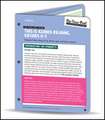 Preț: 88.67 lei
Preț: 88.67 lei -
 Preț: 147.92 lei
Preț: 147.92 lei -
 Preț: 273.44 lei
Preț: 273.44 lei -
 Preț: 245.73 lei
Preț: 245.73 lei -
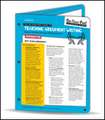 Preț: 88.67 lei
Preț: 88.67 lei -
 Preț: 236.13 lei
Preț: 236.13 lei -
 Preț: 209.16 lei
Preț: 209.16 lei -
 Preț: 256.83 lei
Preț: 256.83 lei -
 Preț: 291.05 lei
Preț: 291.05 lei -
 Preț: 288.67 lei
Preț: 288.67 lei -
 Preț: 273.44 lei
Preț: 273.44 lei -
 Preț: 278.11 lei
Preț: 278.11 lei -
 Preț: 244.08 lei
Preț: 244.08 lei -
 Preț: 244.45 lei
Preț: 244.45 lei -
![Mentor Texts That Multitask [Grades K-8]: A Less-Is-More Approach to Integrated Literacy Instruction](https://i3.books-express.ro/bs/9781071836132/mentor-texts-that-multitask-grades-k-8.jpg) Preț: 241.23 lei
Preț: 241.23 lei -
 Preț: 140.62 lei
Preț: 140.62 lei -
 Preț: 216.22 lei
Preț: 216.22 lei -
 Preț: 218.84 lei
Preț: 218.84 lei -
 Preț: 289.03 lei
Preț: 289.03 lei -
 Preț: 273.44 lei
Preț: 273.44 lei
Preț: 247.68 lei
Nou
Puncte Express: 372
Preț estimativ în valută:
47.40€ • 51.47$ • 39.82£
47.40€ • 51.47$ • 39.82£
Carte tipărită la comandă
Livrare economică 23 aprilie-07 mai
Preluare comenzi: 021 569.72.76
Specificații
ISBN-13: 9781506334387
ISBN-10: 1506334385
Pagini: 248
Dimensiuni: 216 x 279 x 18 mm
Greutate: 0.68 kg
Ediția:1
Editura: SAGE Publications
Colecția Corwin
Seria Corwin Literacy
Locul publicării:Thousand Oaks, United States
ISBN-10: 1506334385
Pagini: 248
Dimensiuni: 216 x 279 x 18 mm
Greutate: 0.68 kg
Ediția:1
Editura: SAGE Publications
Colecția Corwin
Seria Corwin Literacy
Locul publicării:Thousand Oaks, United States
Cuprins
Chapter
1.
Big-Idea
Groups:
Scaffolded
Reading
Instruction
Where
Engagement
Rules
The Ultimate Goal: Real Student Independence
Now Look at Student Independence During Big-Idea Groups
Four Facets of the Framework
How Big-Idea Groups Fit Within Other Small-Group Models
A Few Important Frameworks for Reading Closely
The Effective Environment Around Close Reading
What About Guided Reading and Strategic Reading?
What’s Ahead in This Book?
An Introductory Big-Idea Lesson
On Another Day: Adapting the Introductory Lesson With an Informational Text
The Great White Space
Chapter 2. The Lesson Design
The Tweaks to DRTA
Five Phases of the Lesson
Time Factors
When to Begin?
How Do They Fit Within Units of Study?
A Trial Run: The "Why" Behind Each Phase
Phase 1: Engaging
Phase 2: Discussing
Phase 3: Deep-See Thinking
Phase 4: Connecting
Phase 5: Assessing
Chapter 3. The Tools of Engagement
Interesting Texts
Collaboration
Autonomy
Real-World Instruction
Coherence
Expository Expectation Map
Important Versus Interesting
Ranking Characters
Ranking the Table of Contents
Semantic Word Ranking
Sketch-to-Stretch
Staircase Label
Vocabulary Karaoke
Teacher Involvement
Chapter 4. The 30 Lesson Planners
Chapter 5. Transferring Thinking Across the Day
Teacher Variety During Small-Group Instruction in the Reading Block
Agency: The Ability to Fly on Your Own
Connecting Conferring to Big Ideas Across the Day
Creating a Community Connecting to a Common Beacon
Making Homework a Matter Worth Doing
Chapter 6. Assessing Readers Within and Beyond the Group
The Rubric
Classroom Examples
Phase 1: Engaging
Phase 2: Discussing
Phase 3: Deep-See Thinking
Phase 4: Connecting
Responsible Talk
Assessing Speaking and Listening
Tracking Data to Help Drive Instructional Adjustments
Chapter 7. Useful Forms and Lists for Big-Idea Groups
Tactile Tool Forms
Box and Bullets
Character Karaoke
Charting the Chapters
Moving to Make Meaning
Pyramid of Perspectives
Semantic Circle
Tactile Chart
Vocabulary Karaoke
Topics Card
Other Big-Idea–Worthy Texts
Formative Assessment Data Sheet
Build Your Own Big-Idea Lessons Kit
The Ultimate Goal: Real Student Independence
Now Look at Student Independence During Big-Idea Groups
Four Facets of the Framework
How Big-Idea Groups Fit Within Other Small-Group Models
A Few Important Frameworks for Reading Closely
The Effective Environment Around Close Reading
What About Guided Reading and Strategic Reading?
What’s Ahead in This Book?
An Introductory Big-Idea Lesson
On Another Day: Adapting the Introductory Lesson With an Informational Text
The Great White Space
Chapter 2. The Lesson Design
The Tweaks to DRTA
Five Phases of the Lesson
Time Factors
When to Begin?
How Do They Fit Within Units of Study?
A Trial Run: The "Why" Behind Each Phase
Phase 1: Engaging
Phase 2: Discussing
Phase 3: Deep-See Thinking
Phase 4: Connecting
Phase 5: Assessing
Chapter 3. The Tools of Engagement
Interesting Texts
Collaboration
Autonomy
Real-World Instruction
Coherence
Expository Expectation Map
Important Versus Interesting
Ranking Characters
Ranking the Table of Contents
Semantic Word Ranking
Sketch-to-Stretch
Staircase Label
Vocabulary Karaoke
Teacher Involvement
Chapter 4. The 30 Lesson Planners
Chapter 5. Transferring Thinking Across the Day
Teacher Variety During Small-Group Instruction in the Reading Block
Agency: The Ability to Fly on Your Own
Connecting Conferring to Big Ideas Across the Day
Creating a Community Connecting to a Common Beacon
Making Homework a Matter Worth Doing
Chapter 6. Assessing Readers Within and Beyond the Group
The Rubric
Classroom Examples
Phase 1: Engaging
Phase 2: Discussing
Phase 3: Deep-See Thinking
Phase 4: Connecting
Responsible Talk
Assessing Speaking and Listening
Tracking Data to Help Drive Instructional Adjustments
Chapter 7. Useful Forms and Lists for Big-Idea Groups
Tactile Tool Forms
Box and Bullets
Character Karaoke
Charting the Chapters
Moving to Make Meaning
Pyramid of Perspectives
Semantic Circle
Tactile Chart
Vocabulary Karaoke
Topics Card
Other Big-Idea–Worthy Texts
Formative Assessment Data Sheet
Build Your Own Big-Idea Lessons Kit
Notă biografică
Mike Raffertyis the Director of Teaching and Learning in Region 14 Schools in Connecticut. He has worked as a classroom teacher, a Reading Recovery teacher, a reading consultant, and a curriculum leader for language arts. He has worked with numerous schools to develop coherence from curriculum to classroom. He has led workshops and presented at conferences on ways for schools to ensure meaningful small group experiences for all students as well as how to implement a successful RTI program. He is also a Graduate Instructor at Southern Connecticut State University, leading courses in reading assessment, intervention and literacy leadership.
Descriere
This
book
provides
teachers
with
the
framework
of
a
unique
4-part
process—Engage,
Discuss,
Deep-See
Think,
and
Connect—
in
order
to
develop
students’
literal,
inferential,
evaluative,
and
analytical
skills.
